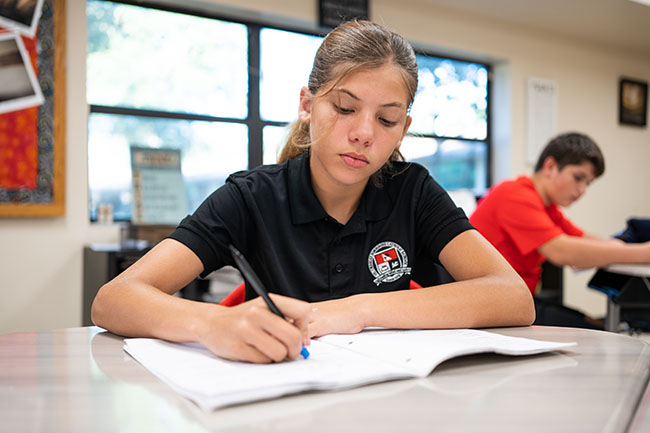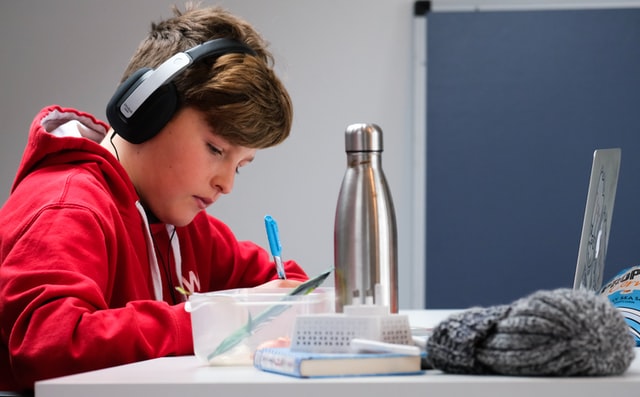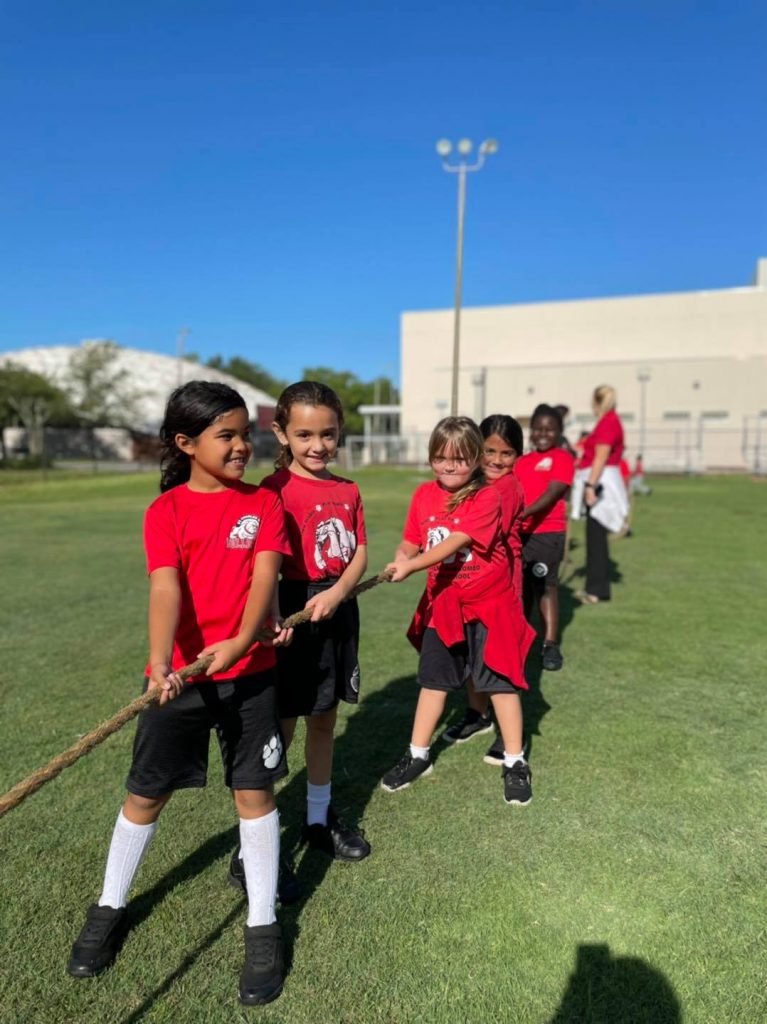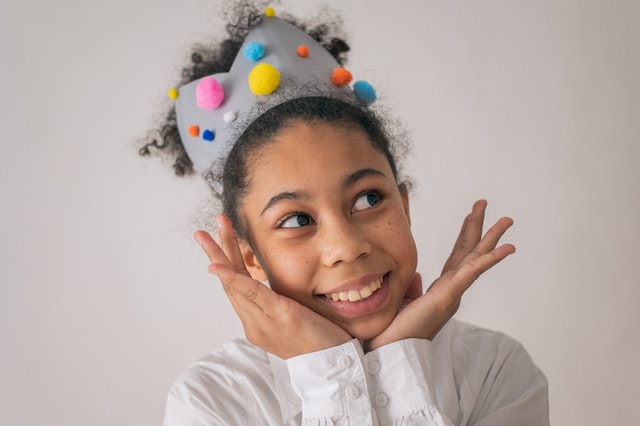
The written word is one of the most important forms of communication in the world. Helping your child become a better writer is a key component of a successful education, regardless of the subject. At our Orlando Catholic School, we understand the importance of cultivating writing skills in our students and want to share some tips to help our parents supplement their child’s development of these skills.
Encourage reading
Children who love to read are prone to be good writers. When your child observes that you read often and enjoy it, they are more apt to model your behavior. Understanding the written word, experiencing different styles of writing, etc., are crucial components to developing great writing skills, and it starts young. Babies who explore books and are read to are more likely to enjoy reading and subsequently develop good writing habits.
Don’t write it for them
It’s hard to watch your child struggle with sentence formation and developing a storyline. Instead of dictating what they should be writing, ask questions to guide them through their thought process. Where did your story take place? Who was in your story? What did he or she do? Ask basic questions to help them learn independent thought and creativity. If they get stuck, ask more questions. They’ll get there on their own.
If your child loves to regale you with the events of the day, it’s OK to jot down notes as a guideline and ask them to write it all down in story form. You’ll be surprised at how much they enjoy storytelling on paper, and at the same time they’ll be learning how to develop an outline for a story.
Suggest story prompts
If your student can’t come up with an idea for what to write about, have some pictures from newspapers or magazines available to prompt them into thinking where the story occurred and what transpired in the story. For younger children, there are wordless books filled with pictures that you can share with your child while asking questions about what they think is happening to the character.
Develop vocabulary skills
Those weekly vocabulary sheets are an important foundation for writing skills to progress. Provide support during homework to help your child pronounce, spell, and use vocabulary words correctly. Homemade flash cards are a great tool for continuing vocabulary practice over the weekend and on vacation.
Resist the urge to interrupt
Let your child take the lead and read their story back to you. Reading aloud provides validity that what they are reading has value because it’s their story. Resist all temptation to interrupt them. When they’re done, ask relevant questions about the story they’ve told. This will help them acquire critical thinking skills in how to more clearly communicate through descriptive writing.
Discuss everyday writing
Parents can support the importance of writing by pointing out the instances where writing is used every day. Making a grocery list, filling out school forms, or sending a thank you card for a birthday present are examples of the necessity for writing in our daily routine. If your child seems to be struggling, don’t hesitate to reach out to teachers for their observations and thoughts on how you may be of help at home.
Our Orlando private school, located in the Catholic Diocese of Orlando, is committed to proclaiming the Gospel Message of Jesus Christ. We believe in teaching the whole child and want students to love learning, helping them grow into well-rounded, contributing members of society. Learn more about us by contacting us here.

















